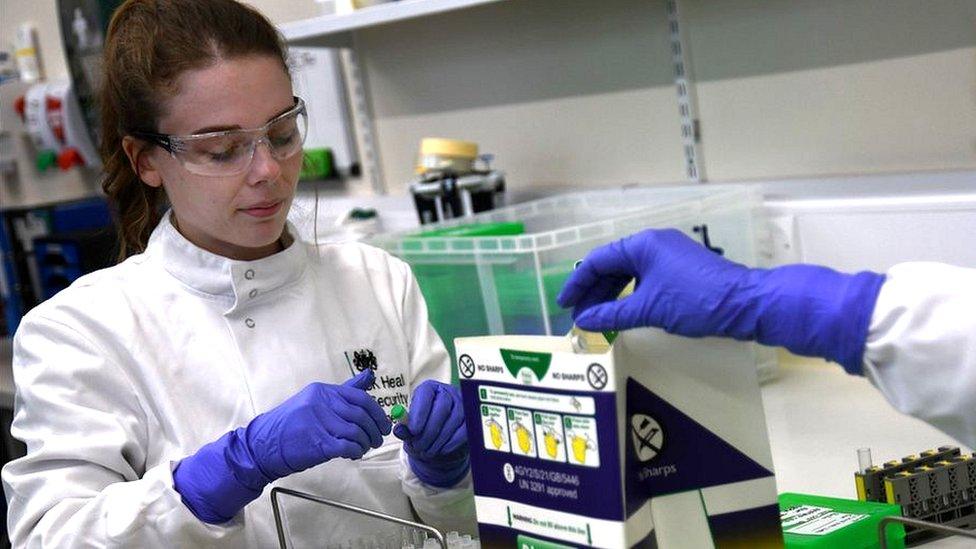Porton Down team to increase pandemic preparations
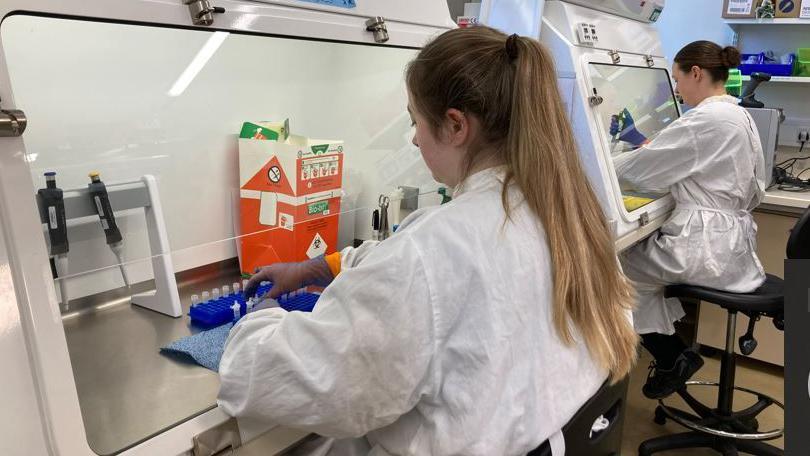
The team at Porton Down played a key role evaluating tests during the Covid pandemic
- Published
A new laboratory has been created in Wiltshire to boost the UK's ability to fight future pandemics.
The Diagnostic Accelerator, based at Porton Down, will improve the speed at which tests can be made for a wider range of different viruses and bacteria.
UK Health Security Agency (UKHSA) chief executive Prof Dame Jenny Harries said: "This will keep us at the forefront of innovation and ensure that the UK is a step ahead when it comes to tackling a wide range of pandemic and epidemic threats."
Scientists at Porton Down evaluated the first tests for Covid-19 when the pandemic began.
Porton Down scientists are currently evaluating how effective mpox tests are.
Mpox - formerly known as monkeypox - is a highly contagious disease and is suspected to have killed at least 900 people in DR Congo in 2024.
So far, five cases of a newer strain of mpox have been confirmed in the UK.
Deputy director of UKHSA's Diagnostics and Characterisation lab Richard Vipond said: "We are looking at the next generation of these tests to see if they have been improved and could be used both in the UK and in the Democratic Republic of Congo."
The Diagnostic Accelerator is also part of the UK's contribution to the global 100 Days Mission, which aims to deploy an effective vaccine within 100 days of a new pandemic emerging.
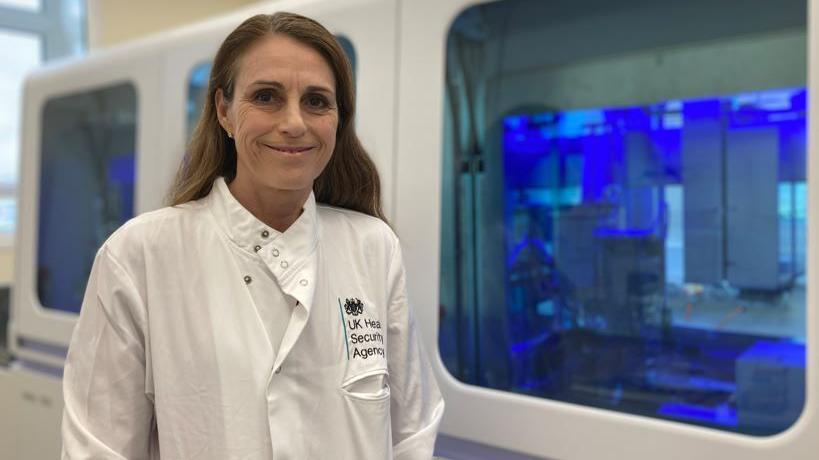
Dr Isabel Oliver, UKHSA chief scientific officer, said the team has been working on preparations for a future avian flu outbreak
UKHSA chief scientific officer Dr Isabel Oliver said their teams are preparing for future pandemics, like avian flu, which has infected a handful of humans so far.
"H5N1 is the one that we've seen spread in a number of animal species recently, particularly in the US.
"We mounted a response a few months ago to a novel swine virus.
"Very sadly we live in a context of climate and environmental change.
"Those factors together with social demographic factors, more rapid travel and trade means we know that there will be another pandemic, the question is when," she said.
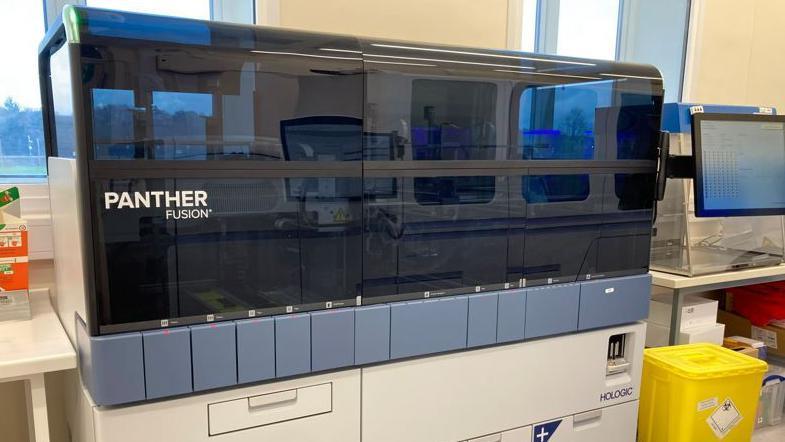
This polymerase chain reaction machine can carry out 1,500 tests in 24 hours
The labs are also speeding up the time it takes to do polymerase chain reaction (PCR) tests to check for genetic material in a sample to identify markers in the blood that show if someone has been infected with a new type of virus.
Porton has two PCR machines which can test 3,000 samples a day and it continues to survey the population for variants of Covid and other emerging pathogens.
In order for the scientists to work safely on the virus it first has to be deactivated, and Porton Down is the only facility in the UK that has an X-ray irradiator to do this.
Get in touch
Tell us which stories we should cover in Wiltshire
Follow BBC Wiltshire on Facebook, external, X, external and Instagram, external. Send your story ideas to us on email or via WhatsApp on 0800 313 4630.
Related topics
- Published2 December 2022
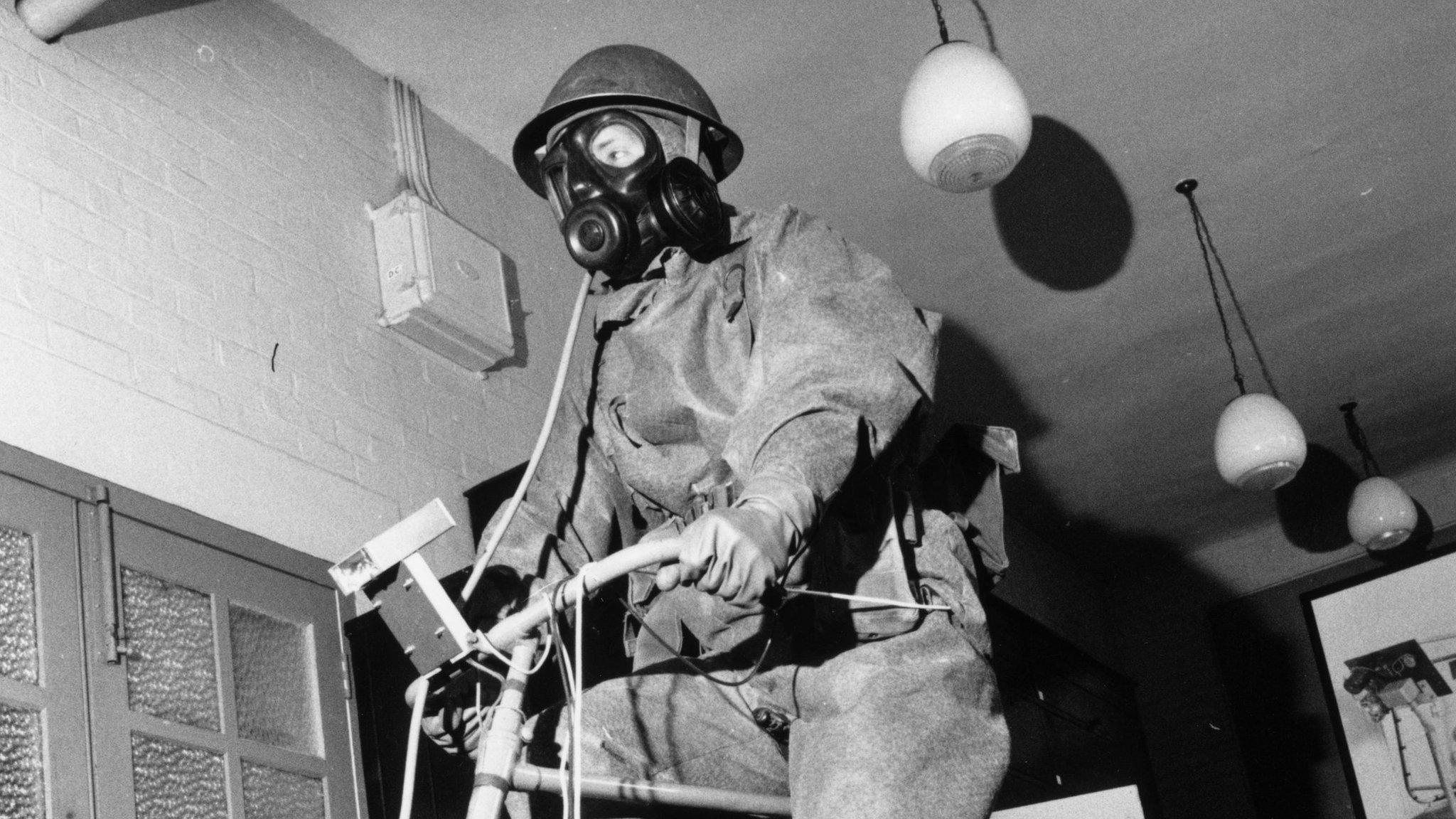
- Published13 June 2019
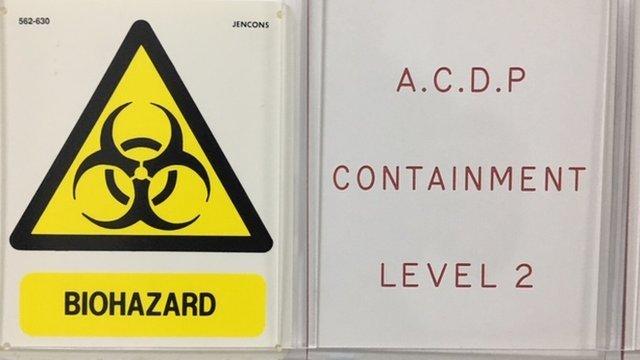
- Published7 August 2023
